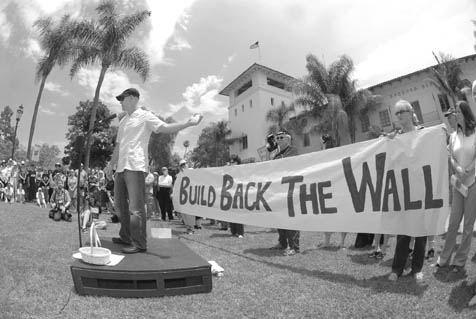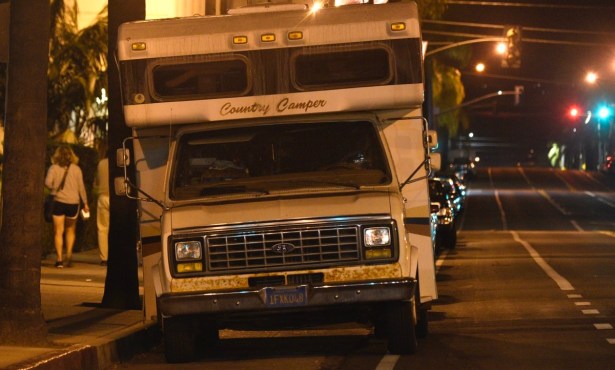Judge Leaning Against Indy in NP Copyright Violation Case
News-Press, Indy Face Off in Court

A year-almost to the day-after Santa Barbara News-Press management filed a lawsuit against The Independent, the two sides met in court October 30 to face the music in the form of a tentative ruling by U.S. District Judge Edward Rafeedie. In contrast to the News-Press’s poor record in court proceedings up to this point in 2007, Rafeedie seemed to be leaning toward the daily’s side. At issue is whether The Independent committed copyright infringement by posting online an unpublished article written by then News-Press reporter Scott Hadly, as well as whether Independent Executive Editor Nick Welsh had obtained another unpublished story-one by former reporter Vlad Kogan regarding News-Press arbitration against its former executive editor, Jerry Roberts.
The Independent went into the hearing asking the judge for a summary judgment-that the case be dismissed. The News-Press asked the judge to make a finding on the copyright infringement claim. Rafeedie read the tentative ruling to the Los Angeles courtroom, noting that The Independent had violated technical copyright laws when it posted the story. The statement seemed to contradict what the judge had said earlier in the day, when he first emerged from his chambers explaining his amazement that people file and pursue pointless litigation, referring to the suit.
News-Press attorney Stanton Stein told the judge that the two sides hadn’t settled because the News-Press wanted to punish The Independent as well as its own employees by means of the lawsuit. Not long after posting Hadly’s story, The Independent received a cease-and-desist letter from News-Press general counsel David Millstein, informing the weekly that the article was copyrighted property of Wendy McCaw’s paper, which had not approved the Indy‘s publication of it. The article had also been delivered via mail to at least two other newspapers, including the Daily Nexus and the Daily Sound, neither of which published it.
Independent attorney Lou Petrich argued any infringement of copyright law was covered by the fair-use defense. There are four different arguments that can be used when asserting fair use: the purpose and character of the use; the nature of the copyrighted work; the amount and substantiality of what is used (in this case, the entire work); and the value. Some part of Petrich’s argument struck a chord, and the judge decided to take another look at the infringement with the fair-use defense in mind, something The Independent president and publisher Randy Campbell said he wished the judge had done the first time around, noting “I’m surprised the judge was inattentive to obvious points of the law.”
Ira Gottlieb-an attorney representing the Teamsters union, which News-Press newsroom employees voted to join in September 2006 and which has since been fighting appeals by the paper on the vote’s validity-was present because he had a “rooting interest if not a participatory interest” in the case. Former reporters Rob Kuznia and Melinda Burns-both of whom Gottlieb represented-in the National Labor Relations Board proceedings against the News-Press-are scheduled for November 1 depositions in the NP v. Indy matter. Several other former NP reporters have already been deposed in the suit.
Though Rafeedie seemed to suggest it was a fishing expedition, according to Gottlieb, the judge gave the News-Press more time to look into the matter and collect evidence supporting its allegation that Welsh had a copy of Kogan’s story, something Welsh denies. The News-Press has thus far offered no evidence to refute Welsh’s position.
News-Press attorney Stanton Stein didn’t return multiple phone calls by deadline. He is also representing the News-Press in a lawsuit against Susan Paterno, the American Journalism Review reporter who wrote a blow-by-blow account of events surrounding the departure of News-Press employees in 2006. The News-Press filed 32 causes of action to Paterno’s story, “Santa Barbara Smackdown,” but a Superior Court ruling upheld only four. An appeals court issued a stay, and is considering an argument from Paterno that the remaining four causes of action be thrown out.



